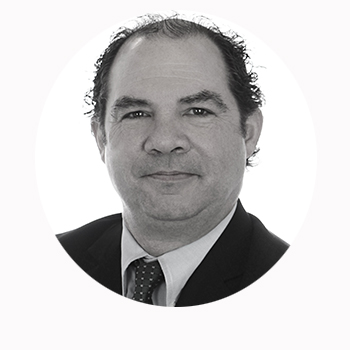Giving Credit Where It's Due


Although most Treasury yields have moved visibly higher thus far in 2021, the absolute level of rates remains historically low. That quandary still leaves investors searching for yield.
Typically, fixed income investors turn to the U.S. credit markets in such a scenario, with investment-grade (IG) and high-yield (HY) corporate bonds filling the need. However, the successful monetary policy approach of the Federal Reserve (Fed) in response to last March’s sell-off has brought corporate spread levels back to pre-pandemic readings, leaving many investors still searching for income opportunities.
There is another outlet investors could consider on this front: emerging markets corporate debt. Often, when discussing emerging markets debt, the conversation turns to questions surrounding local currency, or non-U.S. dollar (USD) based fixed income investments. The WisdomTree Emerging Markets Corporate Bond Fund (EMCB) offers investors an actively managed strategy that invests in globally operating companies that are headquartered in emerging markets and issue debt in USD. Thus, investors are offered a different vehicle for income without the currency risk.
Another interesting attribute of EMCB is its credit quality make-up. This approach is a blend of both investment-grade and high-yield, but the weightings are tilted more toward IG than HY, with a roughly 60/40 split.
Let’s see how EMCB stacks up with U.S. IG and HY in terms of yield and duration:
- EMCB: average yield to maturity 3.92%; duration 4.77 years
- Bloomberg Barclays U.S. Aggregate Corporate Index: yield to worst 2.20%; duration 8.57 years
- Bloomberg Barclays U.S. Corporate High Yield Index: yield to worst 3.99%; duration 3.77 years1
To recap, EMCB offers considerably more yield (+172 basis points) than U.S. IG, but with far less duration (-3.8 years), while for U.S. HY, the yields are very similar with only one year more in duration. And remember, with respect to the HY comparison, EMCB has a credit profile that tilts toward investment grade. In other words, it could be argued that an investor is offered a comparable yield, but with a better credit composition.
Conclusion
When searching for yield, especially within the context of the present fixed income landscape, we continue to emphasize the importance of following a prudent approach. With absolute yields and spread readings at their current levels, there’s no doubt investors are faced with a challenging income setting. However, we feel EMCB provides investors with a reasonable risk-based strategy to complement a broader fixed income portfolio.
1Sources: WisdomTree and Bloomberg, as of 4/8/21
Important Risks Related to this Article
For standardized performance and the SEC-30 Day Yield of the Funds in the chart, please click here.
Performance is historical and does not guarantee future results. Current performance may be lower or higher than quoted. Investment returns and principal value of an investment will fluctuate so that an investor’s shares, when redeemed, may be worth more or less than their original cost. Performance data for the most recent quarter-end and month-end is available at wisdomtree.com.
WisdomTree shares are bought and sold at market price (not NAV) and are not individually redeemed from the Fund. Total returns are calculated using the daily 4:00 p.m. EST net asset value (NAV). Market price returns reflect the midpoint of the bid/ask spread as of the close of trading on the exchange where Fund shares are listed. Market price returns do not represent the returns you would receive if you traded shares at other times.
There are risks associated with investing, including the possible loss of principal. Foreign investing involves special risks, such as risk of loss from currency fluctuation or political or economic uncertainty. Investments in emerging, offshore or frontier markets are generally less liquid and less efficient than investments in developed markets and are subject to additional risks, such as risks of adverse governmental regulation and intervention or political developments. Derivative investments can be volatile, and these investments may be less liquid than other securities, and more sensitive to the effects of varied economic conditions.
Fixed income investments are subject to interest rate risk; their value will normally decline as interest rates rise. In addition, when interest rates fall income may decline. Fixed income investments are also subject to credit risk, the risk that the issuer of a bond will fail to pay interest and principal in a timely manner, or that negative perceptions of the issuer’s ability to make such payments will cause the price of that bond to decline. Unlike typical exchange-traded funds, there is no index that the Fund attempts to track or replicate. Thus, the ability of the Fund to achieve its objective will depend on the effectiveness of the portfolio manager. Please read the Fund’s prospectus for specific details regarding the Fund’s risk profile.


